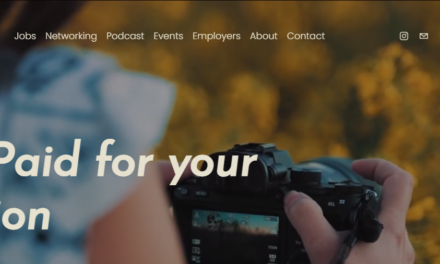
MAY 11, 2021
we need your help
Last call: We need 7 minutes of your time to complete this survey for content creators. If you create content in some fashion, this is for you.
The findings will help us all. Even more than chocolate sprinkles. Plus, completing the survey gives you the chance of winning some Bose Soundlink headphones. Thanks in advance.
full tilt
How a Content Creator Can Bootstrap a Content-First Business
What’s the news?
Investors are interested in the creator economy. Mighty Networks, a platform designed to help creators build communities (and a business), closed on a $50M round, according to TechCrunch.
And?
The single deal is only the latest news. The 2021 Creator Economy List from Contrary’s Startup Search includes 30 startups that have raised $1B recently.
So what?
The allure of these big-dollar investments indicates a strong market for content creators seeking to become content entrepreneurs. That’s the good news.
What’s the downside?
You aren’t likely to see investors clamoring to invest in your business. The big money is going to the supporter platforms for content creators like Stir, Substack, Linktree, etc.
The Tilt Talk and Advice
Why does that matter to a content entrepreneur?
You need to identify how to finance your content business startup without the involvement of venture capitalists and other big-time investment vehicles.
Where do you find the money?
We’re big fans of bootstrapping because you retain ownership of your content business. And content entrepreneurs are perfect for bootstrapping.
What’s bootstrapping?
“Bootstrappers take an idea – and, using talent or professionalism – build a worthwhile business without the backing from investors and having little or no starting capital,” explains Investopedia.
What should you do first?
Save whatever money you can. At the same time, identify how much money you really need. Unlike other startups, content creators can launch with a minimal budget. You will need equipment, domain names, front- and back-end services, such as web hosting, email services, etc.
If you’re growing your business, detail what’s needed to improve it. If you’re a YouTuber, for example, do you need better lighting or an audio mixer to take it next level? Or are your subscribers growing so you’ll have to jump up to your email service’s pricier plans?
What if you don’t have the necessary savings?
Consider launching a pilot program using third-party services like Substack, Ghost, Patreon, and others. You can make some money while building your audience. Look at the pros and cons to pick the right one for your business model.
Anything else you should know about these platforms?
We say it often: Don’t build your content business solely on these third-party providers. You may not be able to move away from it early on, but have a plan to diversify onto platforms you own and control.
Are there other options?
Banks aren’t eager to give you a loan. If your audience is large enough, look into a credit line with Karat.
Look to your local small business development office and research business-accelerator programs. You may find startup grants. You also can use their free programming and advisory services.
What else?
We like these two pieces of advice from bootstrapper Jackie Hermes: (1) Be OK with going slow. (2) Reinvest your profits back into the business.
– Ann Gynn
To learn more about bootstrapping, including more ideas and examples, and how it can help your content business, read the longer story.
Chris Ducker Puts ‘You’ in Content Entrepreneur
Entrepreneur: Chris Ducker
Biz: Chris Ducker
Tilt: Youpreneur – building a business based on you, your expertise, and the people you want to serve
Channels: Youpreneur Summit; Rise of Youpreneur; YouTube (14.5K); Instagram (32.8K); Facebook (25K)
Rev Streams: Book, podcast, event, speaking, coaching
Our Favorite Actionable Advice
- Stick with email: Chris continues to focus on email as his base. He also keeps it fresh with new content delivered to inboxes weekly.
- Do your PR: His goal is to guest on at least three podcasts every week. He looks for podcasts with at least 25 episodes.
- Don’t obsess on analytics: He doesn’t optimize his content for search engines. Yet 73% of his website visitors come from organic search.
Some of the Story:
Years before he coined the term “youpreneur,” Chris Ducker already was a successful entrepreneur of brick-and-mortar businesses. But he ran out of steam. Diagnosed with acute exhaustion, dehydration, and a back injury, he made some changes. He blogged and did a podcast about his journey as a burned-out entrepreneur.
Within a year, with little marketing other than guest appearances on a few blogs and podcasts, he had close to 6,000 people on an email list and had amassed 200,000 or so podcast downloads.
Today, Chris has three seven-figure businesses, a podcast with close to 8M downloads and more than 100K followers on social media, 75K email subscribers, and top-selling books.
“Every youpreneur is a content entrepreneur and every content entrepreneur is a youpreneur,” says Chris. “It’s about building a business that [isn’t] reliant on you, but based on you, your expertise, and the people you want to serve. Creating the content is at the very center of everything that the youpreneur does.”
To grow his content business, Chris has relied, in large part, on that email list that he continues to build and keep fresh. He sends a weekly digest based on the particular stage of the recipient’s business.
Over the years, he’s added more content and services to his offerings, including events, speaking engagements, coaching, and books, including Rise of the Youpreneur. His Youpreneur FM podcast remains a first love.
Chris says starting conversations is key to grow followers, views, and, ultimately, a business. “Without conversations, I can’t build rapport. If I don’t build rapport, I can’t gain trust. And if I don’t gain trust, I’ll never sell anything to anyone,” he says.
Chris creates for his audience, not search engines. And yet in 2020, 73% of visitors to his site came from organic search.
Instead of coming up with a brand name, Chris sees plenty of benefits in simply operating under your own. “Our goal as content entrepreneurs is to become somebody’s favorite; that’s it,” he says. “That’s the gold standard. Become their favorite podcaster, their favorite YouTuber, their favorite live streamer, their favorite author, their favorite speaker. And so, for me, I’m going to do it under my own name.”
– Sarah Hall
All the Story: To learn more about Chris Drucker, the content entrepreneur and the content business, check out the longer story.
Know a content creator who’s going full tilt? DM us or email ann@thetilt.com.
quick talk
Caught on … Twitter
“Time tracking enables us to identify patterns that may be helping us, or holding us back, in our lives.” – Fast Company (Dorie Clark)
things to know
Money
-
Product expansion: Substack publishers can add more offerings under the same name. You can add a newsletter or a podcast on the settings page. You also choose if your subscribers are automatically allowed to access the new content. (Substack)
Our take: As long as your content targets a similar audience, it can be smart to group them under the same brand name. -
Tip jar tip-off: Twitter launched its tip jar feature. Users found some anonymity “oops” for PayPal tipping. Home addresses for tippers were revealed. And in some cases, the email address of the tip recipient was too. (Wired)
Our take: Twitter says going forward, it will disclose the exposure potential, but we see it as a great reminder to never assume your online behavior is anonymous.
Audiences
-
Deeper scrolls: Bigger screens no longer means desktop users won’t scroll “below the fold.” Data from Chartbeat indicates readers are scrolling through articles on desktops more than they did and scrolling has declined slightly on mobile. (Axios)
Our take: Scrolling is great, but always make sure your intro content attracts readers from the first screen. (Think attention-grabbing headlines and images.) -
Next-level audio: A study of U.S. adults shows audio content “connects and engages audiences on a much deeper level than other media types, forming emotional connections and capturing attention.” (MarTech Series)
Our take: Don’t think of audio as a podcast or Clubhouse thing. Make it easy to transform your text into speech, and you’ll instantly expand your audience.
Tech and Tools
-
Scroll up: Twitter has acquired Scroll, which is “cleaning up the reading experience,” allowing content to be consumed without ads, pop-ups, etc. It will be part of Twitter’s new premium subscription offerings, which will include its earlier purchase of Revue. (Twitter)
Our take: Twitter’s play for premium can be good for content entrepreneurs who are beginning their businesses with an already large audience on that social media platform. -
Welcome to Android: Keeping a touch of a mystery and exclusivity, Clubhouse is rolling out the Android version in a beta phase. New members still need an invitation to join. (Verge)
It makes sense to do ASAP given Clubhouse monthly downloads dropped from 9.6M to 900K between Feb. and April.
Our take: Use the expansion to ask your followers to invite Android folks to the platform (and then your rooms and clubs.) Give in-room shoutouts or priority access to the stage as a reward.
And Finally
-
Dominate domains: Jasyn Prolifiq’s all-in on Dogecoin. He also is setting up a content business, acquiring www.thedogecoinmillionaire.com and social handles of the same name. “The longer I hold, the more I can create content on top of all of this, even if it goes down, guess what? That’s content. People want to see me lose a hundred thousand dollars,” he said. (Morning Brew)
Our take: After Elon Musk’s SNL appearance, we’re glad Jasyn has a content business to develop. We look forward to his storytelling start. -
No-follow rules: Facebook was right to block Donald Trump from posting, but his indefinite suspension violated the platform’s own rules, according to its Oversight Board Administration. It took no action except to say Facebook should take six months to rethink it. (DigitalNewsDaily)
Our take: Not only can Facebook change the rules, it can ignore them too. One more reason to ensure you’re building audiences on platforms you control.
we’re a stan for Cameron Ferguson
The stage for Cameron Ferguson is Twitch. The Seattle singer-songwriter-guitarist doesn’t have a big audience (2.4K), but he had the right audience one night in April: CobieLive (11.7K) on Twitch aka CryptoCobain (330K) on Twitter.
CryptoCobain told Cameron to register for Blockfolio, a cryptocurrency app, create a Twitter account, and add his crypto address in the bio. A day later, Cameron (CamFergMusic) had $85K in his Blockfolio account. (The story has been told on multiple sites, including Dexerto.)
Three weeks later, Cameron frequently posts to his new Twitter account and has over 5K followers. His Twitch goals and progress for May are more moderate. Eight days in: 339 of 1K subscribers; 2,384 of 10K followers; and $1 of $3K in donations.
Why we’re a Stan: Cameron won the audience lottery when CryptoCobain heard him play. But he isn’t just cashing in; he’s building his business. It’s great that he didn’t see Twitter as a one-off revenue play. By regularly posting (and keeping his crypto address in the bio), he’s growing his community and his business. We also were pleased to see the lottery audience didn’t go to his head. His May goals on Twitch are ambitious but within the realm of possibility.
the business of content
Hear what Joe Pulizzi, founder of The Tilt, has to say in his weekly podcast, Content Inc. (It’s worth the eight minutes.) This week, he discusses why we need to start killing some of our channels and focus on being better in fewer places.
In the latest This Old Marketing, Joe and Robert argue again about the future of NFTs and social audio.
the tilt team
Your team for this issue: Joe Pulizzi, Ann Gynn, Laura Kozak, Dave Anthony, and Mackenzie Pippin, with an assist from Sarah Hall.
Get more of the Full Tilt stories on TheTilt.com.
Know a content creator who’s going full tilt? DM us or email ann@thetilt.com
Was this email forwarded to you? Get your own sub here.
Copyright ©2021 Tilt Media LLC All rights reserved.
Unsubscribe | Update your profile | 17040 Amber Drive, Cleveland, OH 44111





